Dr. Christine Salomon, Associate Professor, Center for Drug Design, University of Minnesota- Twin Cities

Dr. Linda Kinkel, Professor, Department of Plant Pathology, University of Minnesota- Twin Cities
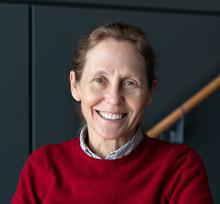
Linda Kinkel is a Professor in the Department of Plant Pathology at the University of Minnesota. Her research focuses on the ecology and evolutionary biology of plant microbiomes in native and agricultural habitats. Dr. Kinkel and her team have been especially interested in developing practical approaches for managing the ecology and evolutionary dynamics of antagonistic soil microbes to enhance the suppression of plant diseases. Her current work integrates genomic and transcriptomic analyses of soil and endophytic populations and microbiomes in relation to pathogen suppression, plant host and plant community diversity, and soil carbon dynamics in agricultural and native prairie soils. Dr. Kinkel also serves as Founder and Chief Science Officer of Jord BioScience, seeking to translate fundamental knowledge of soil microbiomes to practical tools for growers.
Dr. Devanshi Khokhani, Assistant Professor, Department of Plant Pathology, University of Minnesota-Twin Cities
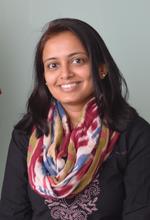
Devanshi Khokhani is an Assistant Professor in the Department of Plant Pathology. Her team is interested in studying pathogenic as well as beneficial plant-microbe interactions to improve disease management and nutrient uptake by cereal crops. She leads projects on understanding virulence mechanisms of gram-negative and gram-positive bacterial pathogens, particularly Ralstonia solanacearum and Clavibacter nebraskensis. On the beneficial side of interactions, she studies tripartite interactions involving mycorrhizal fungi and nitrogen-fixing bacteria with the goal of improved nitrogen uptake by cereal crops like corn.
Dr. Dana Davis, Associate Professor, Division of Hematology, Oncology, and Transplantation, Medical School, University of Minnesota
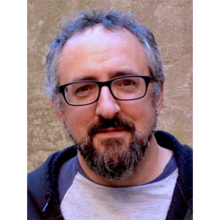
Dr. Krishna Subbarao, Keynote Speaker, Cooperative Extension Specialist, Department of Plant Pathology, University of California- Davis
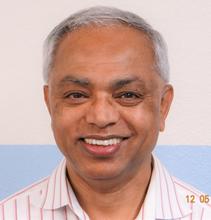
Krishna Subbarao is a Distinguished Professor of Plant Pathology at the University of California, Davis. His career research focus has been on soilborne fungal diseases affecting lettuce and other cool-season vegetable crops. Subbarao has pursued both field and lab-based inquiries to untangle complex disease problems. His research is highly inter-disciplinary and covers diverse areas and has developed environment-friendly and economical alternatives to soil fumigation in protecting cool-season vegetable crops. In recent years, he has employed genomics to answer longstanding questions on Verticillium biology. He previously served as the Editor-in-Chief of Phytopathology and as the Chair of the Publications Board for APS. Subbarao is a recipient of the APS Syngenta Award in 2004, Fellow in 2010, and Ruth Allen Award in 2018
Dr. Rachel Hestrin, Assistant Professor, Plant Biology Graduate Program, University of Massachusetts- Amherst
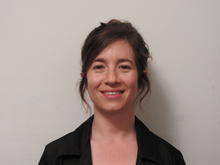
Rachel Hestrin received a BA in Geography from UC-Berkeley, a PhD in Soil and Crop Sciences from Cornell, and conducted postdoctoral research in Environmental Isotope Systems at Lawrence Livermore National Lab. She is currently an Assistant Professor in the Stockbridge School of Agriculture at UMass Amherst, where her research group investigates plant-microbe interactions, terrestrial biogeochemistry, and ecosystem response to change.
Dr. Mathew Moscou, USDA-ARS Research Plant Pathologist/Adjunct Assistant Professor, University of Minnesota- Twin Cities
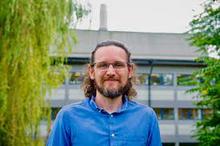
Matthew Moscou is a USDA-ARS Research Plant Pathologist at the Cereal Disease Laboratory and Adjunct Assistant Professor in the Department of Plant Pathology at the University of Minnesota, St. Paul. Matthew received a BS from the University of California, Riverside, USA where he studied Pure Mathematics and Physics (BSc) in 2004, and a PhD in Bioinformatics and Computational Biology from Iowa State University in 2010. He next joined as a post-doctoral scientist at the Sainsbury Laboratory in the 2Blades Group with Eric Ward, promoted to team leader in 2012 and group leader in 2014. His group studies the interaction of cereals and rusts, investigating the complex evolutionary interplay between plant immunity and pathogen infection.
Dr. Kaitlin Gold, Assistant Professor and Susan Eckert Lynch Faculty Fellow, School of Integrative Plant Science Plant Pathology and Plant-Microbe Biology Section, Cornell AgriTech
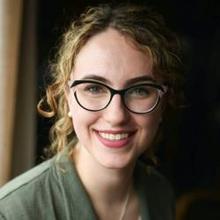
Katie Gold is an Assistant Professor of Grape Pathology at Cornell University, where her and her lab, the Grape Sensing, Pathology, and Extension Laboratory at Cornell AgriTech (GrapeSPEC), study the fundamental and applied science of plant disease sensing to improve early disease detection and sustainable integrated management. The Gold Lab studies plant-pathogen interactions at scale with a range of technological approaches, but with specialization in multi-scale in situ and imaging spectroscopy. Gold leads the pest and disease risk mitigation arm of NASA Acres and is an internationally recognized expert in early plant disease detection with remote sensing. In 2019 she was honored by the American Phytopathological Society with the Schroth Face of the Future Award for her pioneering research on the use of hyperspectral sensing for pre-symptomatic disease and differentiation. Prior to starting her tenure-track position at Cornell, she held a visiting faculty fellowship at the NASA Jet Propulsion Laboratory in Pasadena, CA. Gold’s extension publications (“Grape Disease Control” guide, Appellation Cornell features, and industry publications) are distributed to grape growers worldwide and her talks have been attended both live and revisited over time as recordings by thousands of unique individuals.